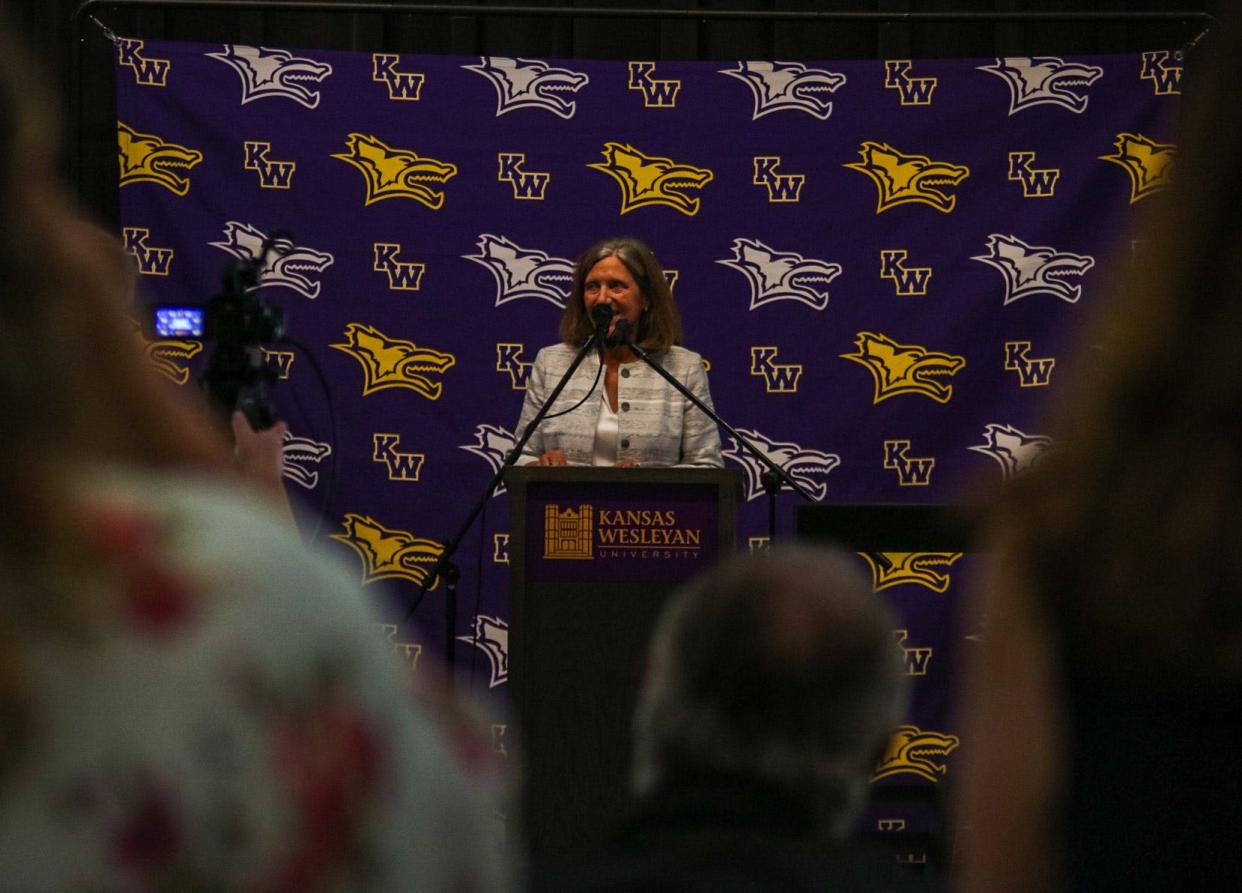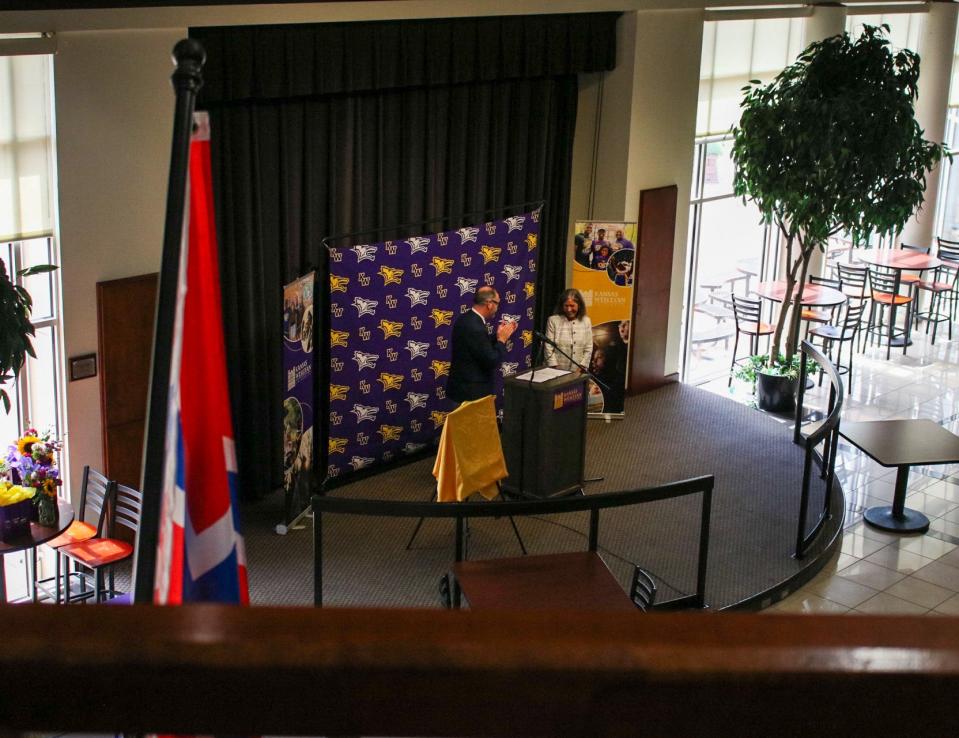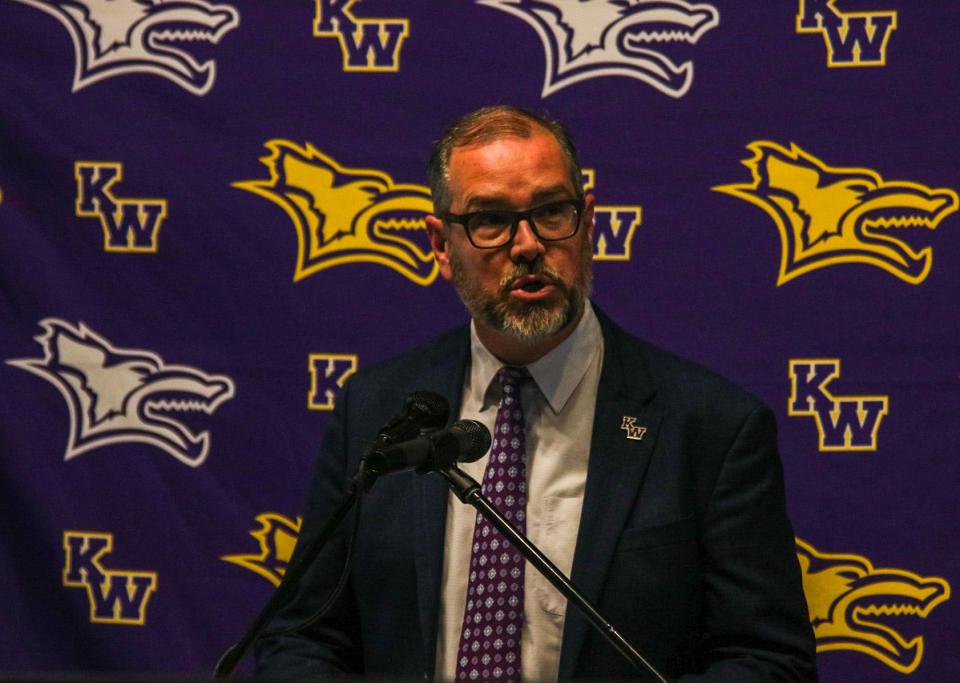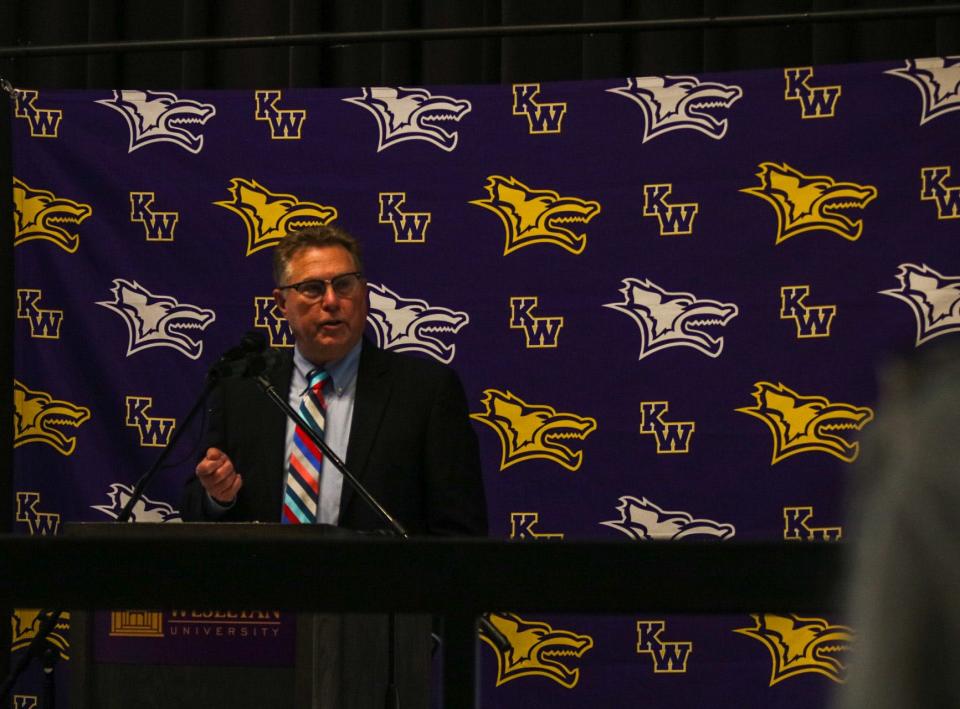Hale family gives $1.5M to Kansas Wesleyan, investing in the future of agriculture

A local family has gifted Kansas Wesleyan University $1.5 million in support of a cutting-edge program researching the future of agriculture, the university announced Wednesday.
The gift continues significant support from the family of the late Joyce Vanier Hale and will go toward the Community Resilience Hub, a program working to establish resources and provide research, support and education for new agriculture solutions.
With the gift, the university plans to establish the first full-time Kansas Wesleyan faculty position associated with the Hub as the H.D. “Joe” Hale Chair of Regenerative Agriculture. In the past, the Hale family has supported campus renovations, scholarships funding and technology initiatives.
"The Hale family has made a gift that will enable the hub to bring our vision to life in many ways, and we are appreciative of what your family has done across the generations for Kansas Wesleyan," said Kansas Wesleyan president Matt Thompson.
Gift helps further the Community Resilience Hub mission
The Community Resilience Hub, often just referred to as "the hub" around campus, is an initiative that supports hands-on training and research in regenerative organic agriculture. The practice aims to revitalize and sustain farm ecosystems.
Regenerative organic agriculture is a collection of practices that focus on revitalizing soil health and entire farm ecosystems. In practice, it can involve a variety of methods including cover cropping, crop rotation, composting and low to no tilling.

In regenerative organic agriculture, there is an enhanced focus on zero use of persistent chemical pesticides and fertilizers.
"At the core of the Community Resilience Hub is a focus on education, action and advocacy to build resilience, tackle complex problems and to catalyze change," said Kansas Wesleyan president Matt Thompson.
More: Global research nonprofit establishes program in Salina for organic farming education
This spring, the university signed a memorandum of understanding with JRI Hospitality, Quail Creek Family Farms and the Rodale Institute to create local regenerative organic farm training and research. This is part of phase one in the initiative to train the next generation of farmers, develop food security initiatives, assist farmers in the transition to regenerative farming, lead research on the issue and host discussions to build environmental literacy.

Guests talk the future of agriculture
As part of his remarks Wednesday, Thompson highlighted some of the problems Kansans and beyond face when it comes to agriculture. Thompson said since about 90% of the food eaten in Kansas is not locally grown, and because water is becoming less available, more people are recognizing the sustainability side of farming.
Mollie Hale Carter, daughter of Joyce Vanier Hale, was in attendance to share what the donation meant to her and her family.
"Our deep roots in Salina have created a strong connection with this university," Carter said. "The Community Resilience Hub and plans for a regerative agriculture program has the ability to make a meaningful difference for future generations of Kansans, Americans, and indeed, the world. My mother was pleased to be able to help launch this program in honor of my father, for which the chair of regenerative agriculture is named."

Carter's mom owned a ranch near Manhattan, Kansas. Having been around agriculture most of her life, she said right now is an interesting point where people are collaborating for new solutions.
"We're at an interesting point in time where people are understanding the implications of ag," Carter said. "We have a lof of people to feed and less and less land."
"We're at a really pivotal point in time where the consumer, the industry and the producer are all sort of understanding the movement that needs to be made and I believe that they are starting to work in concert," Carter said.
Kansas Secretary of Agriculture Mike Beam was in attendance for the gift announcement Wednesday, sharing his thoughts on the program and how the future of agriculture will require unique solutions to ongoing problems.
"Our region here is really uniquely positioned to answer the question of resilience," Beam said. "We've seen it now with the involvement of the Rodale Institute and it seems highly likely that we will see more advancements in the area in... years to come as more... groups recognize the potential in our region mainly because of your work here at Kansas Wesleyan."
To learn more about the Community Resilience Hub and its ongoing work, people can visit www.kwu.edu/crh.
Kendrick Calfee has been a reporter with the Salina Journal since 2022, primarily covering government and education. You can reach him at kcalfee@gannett.com or on Twitter (now known as "X") @calfee_kc.
This article originally appeared on Salina Journal: A $1.5M gift will help fund ag research at Kansas Wesleyan University

